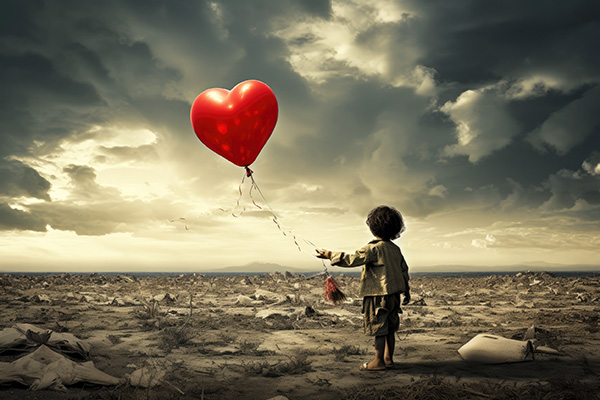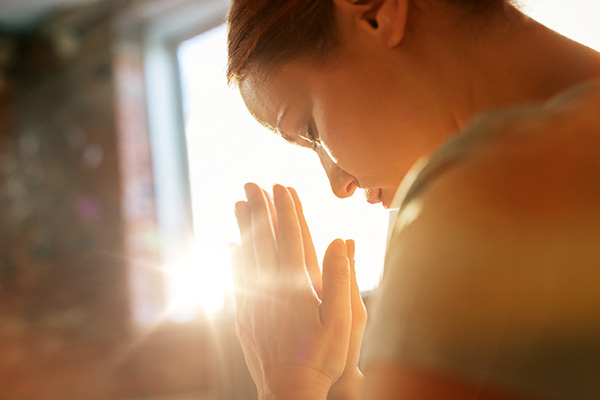spiritual refinement
Ask Spirit For Patience This Holiday Season
The holidays are supposed to be a time of joy, togetherness, and celebration. But for some of us, it can also be a time of tension, distress, and intense emotions.
Instead of being a time of gratitude, love, and connection, for some of us the holidays mark the resurfacing of old family conflicts, unresolved tensions, and the weight of others’ overwhelming expectations or criticisms.
These challenges often lead to frustration, sadness, anger, or feelings of being overwhelmed, turning what should be a time of love and belonging into one that underscores where our relationships with loved ones are most strained.
At this point, asking spirit or your higher power to help you cultivate the virtue of patience becomes a powerful way to stay grounded and centered.
Patience isn’t just about enduring difficult moments; it’s about being aware of those moments and choosing to respond with grace and dignity rather than impulsively. When tensions rise — perhaps during a family dinner where conversations may become heated or awkward — it is easy to fall back on old patterns and habitual responses. Asking for spiritual support and protection in these moments, however, can provide a higher perspective and an empowered response.
Whether it’s through a silent prayer, a few deep breaths, whispering your favorite mantra, or simply making a conscious call for help in your mind, spiritual presence can help you pause, step back, ground and center, and approach the situation calmly and with more compassion — for yourself and others.
Why Our Souls Cannot Afford A Lack Of Empathy
 Life has a way of weaving unexpected lessons into even the most ordinary or practical situations. Sometimes what begins as a business transaction or a casual encounter becomes a doorway into something far more meaningful, a reminder of the deep human connection we are all longing for and the healing power of simple empathy.
Life has a way of weaving unexpected lessons into even the most ordinary or practical situations. Sometimes what begins as a business transaction or a casual encounter becomes a doorway into something far more meaningful, a reminder of the deep human connection we are all longing for and the healing power of simple empathy.
I recently found myself in a situation that reminded me of this truth in the most unexpected way.
I am in the process of selling two homes in different states, which has been quite challenging. Anyone who has sold property knows how stressful and complicated it can be…much less two properties at the same time!
Over the past couple of months I had spoken to quite a few realtors and interested buyers. One agent initially showed strong interest in one of my homes. He seemed genuinely eager, but then he suddenly disappeared without explanation. My calls and messages went unanswered. While I did not sense that he had completely lost interest, I could not wait indefinitely and had to continue moving forward with my plans.
Still, I could not shake a quiet concern for him, as though something more was happening behind the scenes, and the feeling carried a weight of unease.
Several months later, he reached out unexpectedly, asking if I had sold my property yet. He apologized for vanishing and then explained the reason for his absence. He had been in a serious car accident and had spent time in the hospital. His injuries required surgery, and bolts had been placed in his foot. Now he was in physical therapy, learning to walk again.
The Transformative Power Of Finding Your Faith
 Faith is deeply personal and means different things to different people. It can take many forms, such as spiritual faith in a higher power, personal faith in one’s abilities, or faith in the people and principles that shape our lives.
Faith is deeply personal and means different things to different people. It can take many forms, such as spiritual faith in a higher power, personal faith in one’s abilities, or faith in the people and principles that shape our lives.
For some, faith is a guiding force that offers comfort and meaning. For others, it’s a leap into the unknown, choosing hope over doubt. It can be rooted in a religious tradition, philosophical principle, esoteric teaching, or the simple belief that tomorrow holds possibilities unseen today.
Whatever our beliefs, faith is an intense and often unshakable certainty in those beliefs despite the absence of proof. To me, faith is a powerful, transformative force. When embraced, it offers immeasurable strength in the face of life’s challenges.
When I was young, I struggled to grasp the concept of faith. I never doubted the existence of a creator. I never doubted an afterlife or the presence of spirits in our lives. Perhaps this was due to my innate sensitivity to energies and spiritual disposition. I moved through life guided by intuition.
Yet despite my spiritual grounding, my faith was tested repeatedly, especially through experiences of trauma and loss.
I wrestled with questions of purpose and fairness. I couldn’t accept the idea of a cruel or indifferent creator who randomly punished or rewarded people.
Living Your Truth Beyond The Veils Of Illusion
 When you awaken to who you really are — beyond your physical body, thoughts, and emotions — you become fully conscious. You begin to live your life beyond the veils of illusion.
When you awaken to who you really are — beyond your physical body, thoughts, and emotions — you become fully conscious. You begin to live your life beyond the veils of illusion.
This is enlightenment: a state of being in which you have a clear inner realization that you are more than just your body, mind, or personality. It is the recognition of your soul, your divine essence, your true place within the greater fabric of all creation.
Enlightenment is not reserved for saints, sages, or spiritual teachers. It is a living potential within each of us. Nor is it merely a poetic or mystical concept. Enlightenment is a profound existential truth rooted in inner transformation and spiritual transcendence. It is freedom from illusion — the veil of appearances that clouds our perception and keeps us bound to fear, ego, and limitation.
Enlightenment is a return to clarity, authenticity, and the radiant awareness of the light within.
When you are enlightened, you see life clearly. You no longer blindly respond to external expectations, conditioned behaviors, or unresolved wounds. Instead, you live from a place of inner truth and spiritual sovereignty. You recognize your connection to all that is, and your choices begin to reflect this deeper awareness.
However, enlightenment is not an escape from the material world. You still live in it, but you are no longer deceived or controlled by it. You remain grounded, present, and fully engaged in life — but now with a heart full of peace and a mind aligned with higher wisdom.
What It Really Means To Live A Spiritually Aware Life
 It doesn’t matter who you are or what you do for a living. It doesn’t matter how much money you make, how popular you are, where you live, or how attractive others find you. None of these things define your true worth, and none of them guarantee the fulfillment of your life purpose and soul plan.
It doesn’t matter who you are or what you do for a living. It doesn’t matter how much money you make, how popular you are, where you live, or how attractive others find you. None of these things define your true worth, and none of them guarantee the fulfillment of your life purpose and soul plan.
In the end, your spiritual wealth transcends any bank balance. The only bling that really matters is how much your soul shines from within!
Many of the most beautiful, caring, thoughtful, compassionate, and charitable souls walk quietly among us — unrecognized by the world’s superficial standards of success. They may not be rich. They may not be famous. They may not wear designer clothes or have thousands of social media followers. And yet, they truly shine!
What really matters is how you treat others, how you live your life, and how you embody your higher self and the light of of your soul in everyday moments. That is what counts in the eyes of God, Source, Spirit, the Divine. The essence of your spirit, not your resume or your reflection in a mirror, is what will leave your legacy in this lifetime.
The essence of this truth echoes throughout the world’s spiritual traditions, reminding us that attachment to wealth, superficial pleasures and material status can become hindrances to our spiritual journey and soul growth.
In Hinduism, for example, the Bhagavad Gita teaches that only those who see the divine in all beings and remain unattached to sense pleasures will find lasting peace. Similarly, in Buddhism, the Dhammapada warns that wealth can ruin the foolish, and the desire for wealth becomes an obstacle to enlightenment. The Buddha taught that spiritual liberation requires renunciation of attachment and the cultivation of inner clarity.
Finding Peace and Joy In The ‘No-thingness’
 Like Neo in the movie The Matrix (1999) our minds occasionally slip into luminous moments of complete stillness and clarity — tiny mental pauses where all thinking stops just long enough for us to glimpse the truth of all existence.
Like Neo in the movie The Matrix (1999) our minds occasionally slip into luminous moments of complete stillness and clarity — tiny mental pauses where all thinking stops just long enough for us to glimpse the truth of all existence.
In these fleeting spaces between our thoughts, it becomes clear that the comings and goings of life are just that… temporary ‘blips’ of experience that arise and pass through our awareness.
I have come to know these moments as realizations of ‘no-thingness.’
In these brief pauses, something quietly opens up within us. We notice the obvious — what has always been there — hidden behind the busy waking mind and its constant commentary. Our awareness shifts from being consumed by temporary events to seeing what’s always there: the background, the container, the eternal.
These silent mental breaks reveal something much deeper and greater than our own existence and awareness.
There’s a word for this in ancient Sanskrit: svabhāva. It means one’s true nature — the essence of who we are beneath the roles, stories, and conditioning. The term is used in many yogic and Vedantic texts to describe the innate reality or unconditioned self beyond our human ego and thoughts.
Our true authentic self is not something we become. It’s something we remember. When we glimpse the silence between thoughts, we’re not discovering something new — we’re reconnecting with our original divine self. Not the self that reacts and worries, but the self that simply is. Svabhāva is the part of us that doesn’t come and go. It’s the constant presence behind every changing moment. It is the essence of living a truly conscious life.

